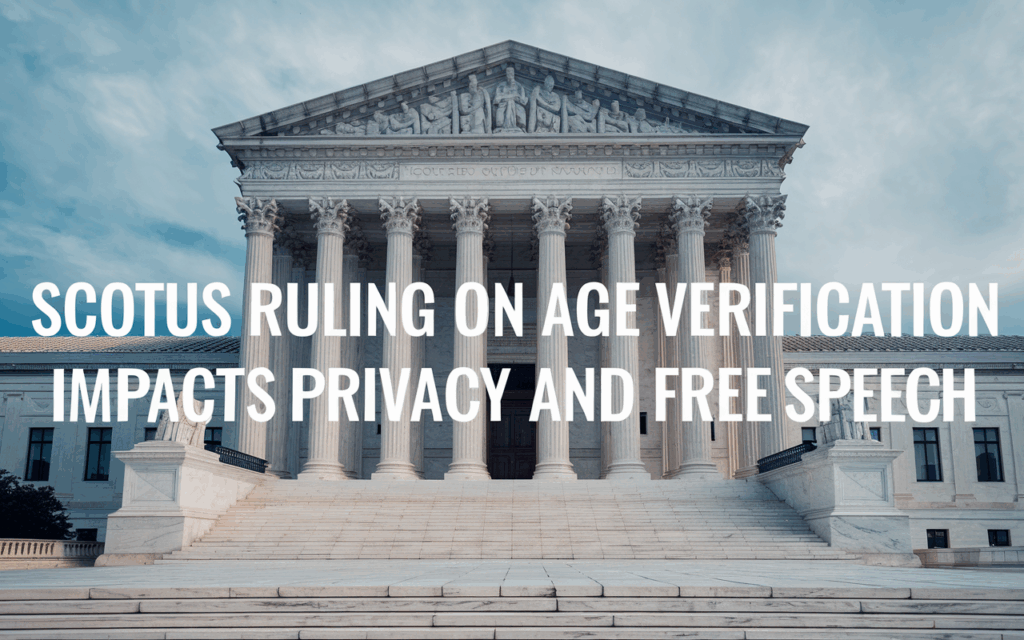SCOTUS Ruling on Age Verification: A Double-Edged Sword ⚖️🔒
The recent ruling by the United States Supreme Court to uphold a Texas law mandating age verification for users of websites featuring "sexual material harmful to minors" has thrown the digital landscape into a whirlwind of debate. While the intention behind this law is to protect children from accessing inappropriate content, the implications for adult users and internet privacy are profound and concerning.
What's the Deal? 🤔
The Texas law, which was challenged by the Free Speech Coalition, requires that users verify their age not just by clicking a box, but by uploading government-issued IDs or utilizing third-party verification systems. Justice Clarence Thomas, in his opinion, stated that states have the authority to regulate access to sexually explicit content to shield minors. The ruling passed with a 6-3 vote, though dissent came from Justices Kagan, Sotomayor, and Jackson.
The Privacy Conundrum 🔐
The implications of this ruling extend far beyond the realm of adult content. As the Electronic Frontier Foundation warns, such stringent age verification laws could limit adult access to lawful speech, jeopardize data security, and erode the anonymity that many users rely on online. With 18 states already having enacted similar laws, the precedent set by this decision poses significant risks to internet privacy.
Age verification tools could potentially store sensitive user data, making it an appealing target for hackers. Given the frequency of data breaches, it's worth asking: Are we trading safety for security?
Complications for the LGBTQ+ Community 🌈
The timing of this ruling is particularly alarming, as it coincides with a broader assault on LGBTQ+ rights across the U.S. Critics argue that vague language in such laws could lead to the classification of non-pornographic content about the LGBTQ community as "harmful to minors." This opens the door for further censorship and restrictions on vital information that's essential for education, health, and representation.
Moreover, the law follows Texas's other controversial legislations targeting the LGBTQ+ community, only deepening concerns over possible discrimination and suppression of marginalized voices.
A Call to Action 🚨
As discussions around this ruling unfold, it’s crucial for us to remain vigilant. We need to advocate for a balanced approach that safeguards minors while also preserving the privacy and rights of adults. Age verification, if necessary, should be implemented in a way that does not compromise user security or free speech.
In conclusion, the SCOTUS ruling on age verification raises significant questions about privacy, access, and the balance of rights in our digital space. As we move forward, it's essential to find solutions that respect individual freedoms while still protecting vulnerable populations.
What are your thoughts on this ruling? Should age verification be enforced, and if so, how? Let's discuss! 💬👇
#Hashtags: [#AgeVerification, #PrivacyRights]

More Stories
Meta’s AR Ambitions and AI Safety: Insights from the Equity Podcast
Insight Partners Data Breach: A Wake-Up Call for Cybersecurity Awareness
Lovable’s Ascendancy: Anton Osika at TechCrunch Disrupt 2025